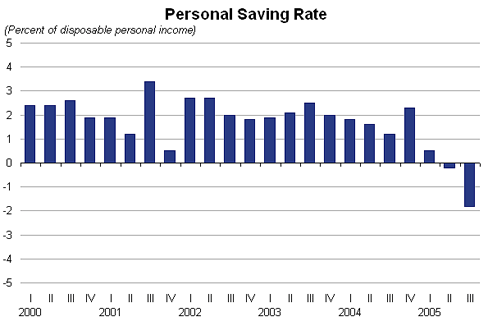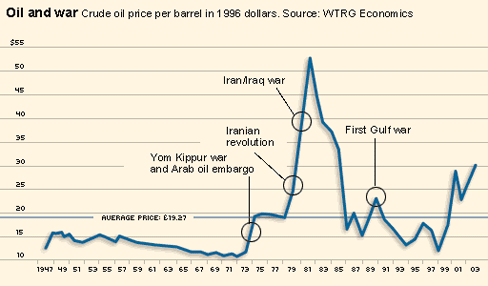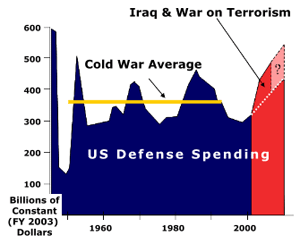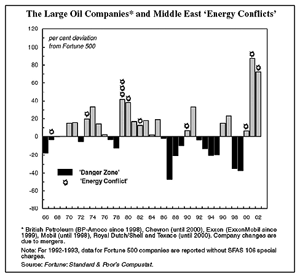“I’ve told the American people before that this will not be another Vietnam, and I repeat this here tonight. . . . I’m hopeful that this fighting will not go on for long and that casualties will be held to an absolute minimum. This is an historic moment. We have in this past year made great progress in ending the long era of conflict and cold war. We have before us the opportunity to forge for ourselves and for future generations a new world order. . . .”
Fifteen years have passed since Bush the Elder first attacked the nation of Iraq. Just remembering that evening recalls the fear and foreboding those first US bombs brought with them. No matter how you look at it, Washington is no closer to conquering Iraq than it was on January 16, 1991. Yet, its armies march onward into a hell of their own making. And they are taking the rest of us with them, whether we acknowledge it or not. Is Iraq a better place? Although the answer to this question depends on where one sits, I will only say that a country being torn apart by war is rarely better off than when it is at peace.
I hope that there will be others writing about the progress or the lack thereof in that shattered country fifteen years on, but that is not my purpose here. I won’t delve into the meaning of the hundreds of thousands of Iraqi deaths since that January evening. I don’t live in Iraq. I live in the United States. So, I’m going to take a look at the US homeland fifteen years after the first wholesale invasion of Iraq by Washington’s forces. How are the people living in this country faring? Are we better off? Are we a freer people? As I said before, the answers to this question depend on where one sits. Given that, let me say that I sit in the US South and I work for a living that pays less than $10.00 an hour. My situation is not uncommon. In fact, it seems to be the standard. That said, let’s take a look at this new world order and what it means for people in my economic situation.
A Quick Survey
What follows is by no means a complete look at the past fifteen years in the United States. Nor is it a complete appraisal of the war(s) and their effects on US residents. Indeed, this is barely a wade in the waters of history.
| “Of the 244,054 veterans of Iraq and Afghanistan already discharged from service, 12,422 have been in VA counseling centers for readjustment problems and symptoms associated with PTSD” (William M. Welch, “Trauma of Iraq War Haunting Thousands Returning Home,” USA Today 28 February 2005). |
No discussion of the war’s effects can ignore the toll in human lives, which continues to grow daily. The number of US military dead in Iraq since that January 1991 attack stands (as of January 11, 2005) at 2563. This figure does not include those men and women who died from war-related illnesses after they returned home. As any reader of the news must know, those numbers include victims of Depleted Uranium poisoning, war-related mental and emotional illness, and other maladies. If we were to include the military casualties incurred in the war in Afghanistan, the number of deaths rises to 2822. Although there is no direct connection between the US war in Afghanistan and the one in Iraq in many people’s minds, there is a link between the two in the minds of the warmakers and the Islamic fundamentalist fighters. Indeed, according to statements attributed to Osama bin Laden and his cohorts, one of the primary reasons for the attacks on New York and Virginia in 2001 was the stationing of US forces on sacred Muslim lands. For those with a short recall function, let me remind you that those forces were originally stationed there during the buildup to George the Elder’s Desert Storm slaughter.
| “A total of 76 journalists and media staff have been killed since the U.S.-led invasion in March 2003, the group [Reporters Without Borders] said. That was more than the 63 reporters killed in the 1955-1977 conflict in Vietnam, the group said, citing figures from U.S.-based press advocacy group Freedom Forum” (Associated Press, “Iraq Tops Vietnam in Journalist Deaths,” Globe and Mail 4 January 2006). |
Which brings us to civilian casualties. If we are to include the deaths of US residents attributed to Bin Laden and his forces, then we must include the casualties of 9-11 and those of every other attack attributed to Bin Laden. In addition, the deaths of US mercenaries must be included (even though their classification as civilians can be easily challenged) — the approximate number for those deaths is 301. Of course, there are others that we will never know about. When one adds the number of journalists killed in these two wars (more than 100), the total number of non-Iraqi and non-Afghan dead hovers near 10,000. If we subtract the deaths of 9-11 and other non-Iraqi terror attacks, that number is still near 3000. None of these dismal numbers even began to compare to the numbers of Iraqi and Afghani deaths, which range from a low of 100,000 to a million or more (remember, this is since January 1991 and includes deaths from war, sanctions, and the occupation).
Numbers never do the dead justice, however. Ask Cindy Sheehan and most any other mother who has lost a child to war.
| “The personal saving rate averaged 8.3 percent over the 1960s and increased to an average of 9.6 percent over the 1970s. Within each of those 2 decades, annual saving rates were relatively steady, although they ranged from a low of 7.2 in 1960 to a high of 10.7 percent in 1974. Over the 1980s, the personal saving rate was slightly lower than in the 1970s. After peaking at 10.9 percent in 1982, the rate generally declined over the 1980s, dropping as low as to 7.3 percent in 1987; for the decade, the rate averaged 9.1 percent. The personal saving rate rebounded from 1987 to 1992 when it reached 8.7 percent. Since then, the personal saving rate has steadily declined” (US General Accounting Office, “National Saving: Answers to Key Questions,” June 2001, p. 21). |
Back to the United States. How else can we measure our situation fifteen years after George W. Bush’s daddy announced the first US bombing of Baghdad? Are the US people better off? How do their bank books look? After all, isn’t that what life’s about in our capitalist paradise? According to the Bureau of Economic Analysis, the personal savings rate is now negative, down from the 7 percent rate that existed for the previous three decades.1

Click on the image for a larger view.
SOURCE: US Bureau of Economic Analysis, “Personal Saving Rate,” 21 December 2005
 Doug Henwood, “The Nation Indicators,” The Nation 272.0014 (9 April 2001) |
This means that many more US residents are just a couple of paychecks away from living on the street. One of the contributors to the low personal savings rate is the incredible rise in energy costs — a rise that is tied to the wars in Iraq and Afghanistan. Other factors include the continuing rise in medical costs as even Medicare heads toward privatization and fewer residents have medical insurance.

Click on the image for a larger view.
Source: “Oil Price since 1947,” The Guardian 2 November 2003
|
Click on the image for a larger view.
(Jonathan Nitzan and Shimshon Bichler, “Clash of Civilizations, or Capital Accumulation?” News from Within 20.3, July 2004, p. 5.) |
What about those gasoline prices? Well, from the time when Saddam Hussein sent his troops into Kuwait in August 1990 until the US attacked Baghdad in January 1991, gasoline prices rose an average of 32 cents per gallon in the US. This means that they hovered right around $1.20 per gallon in January 1991. Now, as we all know, gas prices range from $2.00 per gallon up to near $3.00 per gallon. Meanwhile, crude prices are hovering around sixty dollars a barrel on the exchange. Fortunately for most US residents, the winter has been relatively mild. This has kept heating costs down, but anecdotal evidence suggests that people are still spending more for heating fuel than they were last winter even though they are using less. In other words, the cost of heating has risen exponentially. Of course, these phenomena have helped one sector of the US population — albeit a very small one — who are well-represented in the halls of power: the energy industry. As has been noted over and over, the corporations involved in this industry, specifically the big oil companies, had higher profits last year than any company has ever had in the history of modern capitalism.
What about civil liberties and other political freedoms residents of the US have come to expect as their right? Has the “new world order” that was unsheathed by Bush the Elder, polished by Bill Clinton, and given a martial luster by the younger Bush made the nation a freer place? In a word, NO! It’s not just the illegal spying undertaken by George W. Bush, nor is it the CIA renditions begun under Clinton and continued to today. It’s not just the military courts set up in the wake of 9-11 or the torture cells run by US forces around the world. It’s not just the PATRIOT Act (Samuel Adams has got to love that name!). Indeed, it’s all three administrations’ fawning over police and the accompanying denial of human and civil rights — aided and abetted by Congress — during this period that has turned the United States into a shadow of its perception of itself as written into the Bill of Rights. There’s a reason those amendments were written — even back in the 1780s, there were men that wanted to control freedom of movement and speech and enhance the abilities of the police and army in their endeavors to control the populace. Now, the people in the US are facing another of history’s periodical clampdowns. Whether this clampdown is undertaken in the name of some illusory “war on drugs” or the equally illusory “war on terrorism,” the reality is that the individual in the US is more under the eyes of those in power than at any other point in history. Cops have arrested peaceful protesters without warning at protests against war and global capitalism. Personal information ranging from grocery store purchases to library transactions to travel plans are available to almost any law enforcement agency that wants them. Furthermore, the ordinary citizen has no idea if or when their information has been “reviewed,” nor do they know what agency has “reviewed” it. Indeed, certain investigations can not even be revealed by the company or agency providing the information without the individuals divulging information about them being guilty of an illegal act.
As I hint at above, this most recent clampdown didn’t begin with the PATRIOT Act. Its legal genesis can be traced directly to the Anti-Terrorism and Effective Death Penalty Act of 1996. It was this bill that first empowered the government to activate “alien terrorist removal procedures” without having to give even a nod to due process. Furthermore, this act enabled the government to accuse, try, and deport non-citizens without ever appearing in court. In fact, this law allows the government to avoid even informing the accused that an investigation or “trial” took place. It is but a short trip from these new powers of repression to Gitmo and the torture directives of Donald Rumsfeld and Dick Cheney. It was this law that set the stage for the PATRIOT Act’s attack on the Fourth Amendment protections against unreasonable search and seizure. It relaxed electronic surveillance laws and expanded the government’s ability to spy on groups the government suspects of terrorism; and it gave the president sweeping powers to selectively target domestic groups and arbitrarily criminalize activities he determines a threat to national security.
 SOURCE: Business Leaders for Sensible Priorities, “The FY 2005 Budget: Defense Spending Out of Control” |
The quick (and, upon further thought, the most accurate) appraisal of the last fifteen years is simple. The US is wasting its resources on a war that benefits very few of its own citizens and not too many other people in the world either. The war itself is creating greater problems than it was supposed to solve, despite Washington’s protests to the contrary. It is always important when thinking about matters such as these to follow the money. When this method is used, it’s quite apparent why the people of Iraq have been under attack by Washington’s armies (and those other armies complicit in the destruction). In 1991, the defense budget stood at around 300 billion dollars. The 2005 defense budget hovered near half a trillion dollars (with around $75 billion of that earmarked for weapons procurement). That figure doesn’t even include so-called emergency appropriations for the wars in Iraq and Afghanistan, nor does it include monies spent by the Department of Homeland Security. The top ten US war contractors have seen the monetary value of their contracts increase an average of more than fifty percent just in the past five years. Put that percentage rate alongside the profits of the oil companies. These past fifteen years have been good for somebody. Real good.
The bad news is that they aren’t finished. Most of the folks who run this country, no matter which major party they claim to belong to, think that they can win their various wars and start new ones, continue to privatize the government for the benefit of their friends (Social Security is next, mark my words), spy on and jail people at will, and then tell us that they’re doing it for our own good. One party might wave a stick while the other holds a carrot in front of our nose, but the brutal reality is that both are riding the same horse into the ground — and that horse is this country we live in.
Isn’t it time that both of these riders got thrown of their high horse?
1 US Bureau of Economic Analysis, “Personal Saving Rate,” 21 December 2005. See, also, Maurice Obstfeld and Kenneth Rogoff, “Global Current Account Imbalances and Exchange Rate Adjustments,” 17 May 2005.
Ron Jacobs is author of The Way the Wind Blew: A History of the Weather Underground, just republished by Verso. Jacobs’ essay on Big Bill Broonzy is featured in CounterPunch‘s new collection on music, art and sex: Serpents in the Garden. He can be reached at <[email protected]>.

